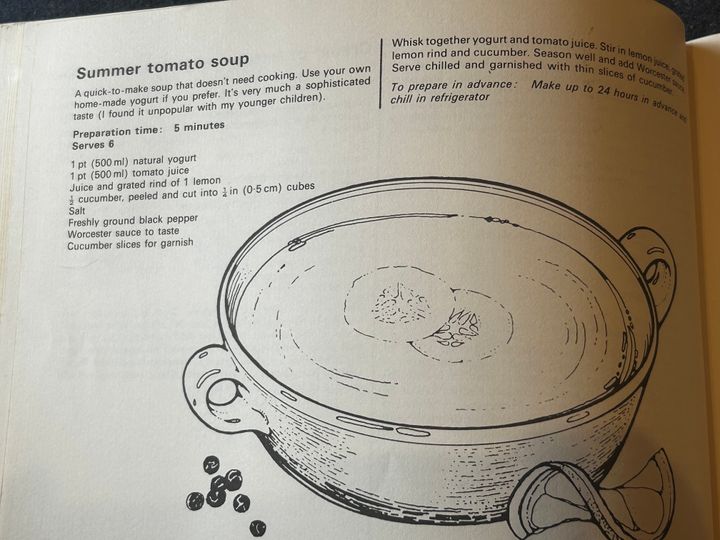Everyone has opinions about how to get a good job and keep one, and it’s hard to figure out which pointers are actually helpful to follow.
What your well-meaning uncle, professor or manager says you need to do for your next job move may actually be disastrous to follow. To be savvy, you need to learn how to weed out the kernels of good career tips from the bad.
Advertisement
To help professionals avoid these mistakes, we asked career experts to share the worst, most common pieces of job advice you’re going to hear a lot in your life. Read on to learn why these boilerplate outlooks can hold you back and what alternative advice you should follow instead.
1. Only apply for jobs that you meet all the qualifications for.

Graphicscoco via Getty Images
This is bad advice because job descriptions are not necessarily realistic and are often written as a “wish list” from the employer’s point of view, said Cynthia Pong, founder of Embrace Change, a career coaching and consulting firm.
“Many people, especially women of colour, people of colour, women in general and others from underrepresented backgrounds or with non-traditional career paths, may self-select out of applying because they don’t meet all the criteria listed,” she said.
Advertisement
Just because a job listing states a desired education requirement does not mean you actually need it. For example, in 2017, Accenture, Grads of Life and Harvard Business School conducted an analysis of 26 million job postings and 600 business and HR executive surveys. They found that 67% of the job postings required at least a bachelor’s degree, yet only 16% of employees who were already in those jobs held that degree. The findings are a reminder that many jobs do not require a college degree to succeed, despite what companies advertise.
Instead of taking yourself out of the running before you apply, Pong advised that it is better to “apply if you meet most key qualifications.”
If you have every skill and experience listed in the description, the job opportunity is likely a lateral career move. But if the role is going to push you beyond what you already know, that’s a sign of a good stretch opportunity, and that’s what actually helps you grow in your career.
One important caveat, though, is that a hiring manager is not going to automatically understand why your unique skill set makes you the best hire — you need to explain that to them.
Pong said job seekers should use the cover letter or other application materials “to connect the dots for the hiring manager as to how your past experience is transferable and will enable you to excel in the particular role, even though you may not check all the boxes for them.”
Advertisement
“As someone on the hiring side, I look at the overall qualities and growth potential that a person brings to the table more than their specific skill set, especially if the person demonstrates a strong ability to learn and teach themselves how to do new things,” she continued.
Even if you do not get the job, applying for the role puts you on an employer’s radar.
“If someone’s not a fit for a particular role, it’s a great opportunity to keep them in mind for another role or future work,” Pong said.
2. Find a job you love and you’ll never work a day in your life.
The message behind this common feel-good platitude is that passion alone will make the drudgery of work go away. But there’s no one correct way to feel about your job. It’s perfectly normal for a job to just be a paycheque that funds your life outside of it. Even dream jobs that are fulfilling and meaningful come with hard days, difficult deadlines and the potential for burnout.
Sometimes, the activity you love to do most is an unrealistic career. Don’t be guilted into monetising your passion hobby into your next side hustle just because you enjoy it. In some cases, it’s better to keep your ceramics hobby as a relaxing extracurricular than your next career.
As Gorick Ng, a career adviser at Harvard University and author of “The Unspoken Rules: Secrets to Starting Your Career Off Right,” previously told HuffPost, “Do you love the business of doing something as much as you love doing the thing itself? Not everyone will say yes to this question and that’s OK.”
Advertisement
It’s normal to want meaning and purpose in what you do for a living, but don’t put more pressure on your work to be more than work. Ng suggested rewriting the advice of “find a job you love” to say, “Find something that brings you joy and purpose every day, and you’ll always have something to look forward to.”
3. You should stay in a job at least a year for your resume.

Xavier Lorenzo via Getty Images
There is an outdated assumption that the longer you stay at a job, the more reliable and responsible you seem to other employers.
Although some employers do judge “job-hoppers” as disloyal, there are many more who understand that a career at one company is unrealistic for people to achieve now in an unstable job market.
Harleny Vasquez, a career coach and university speaker, said she tried following the “stick it out” advice when she was starting her social work career.
Advertisement
“I remember feeling burnt out and unsatisfied, and the idea of sticking it out at one job only added to that frustration,” she said. “What’s more, I already had a history of job-hopping, so pivoting felt like I was breaking some unspoken rule and made me feel guilty.”
From that experience, Vasquez learned that “it’s OK to prioritise your happiness and growth. If a job isn’t fulfilling you, it’s perfectly fine to explore other options.”
“Don’t let guilt hold you back from finding a career path that truly fits you,” she added.
Having multiple jobs can actually make you a more desirable candidate.
“Employers now often look for candidates who have a range of experiences, have tackled various challenge and have a demonstrated ability to adapt to new environments and learn quickly,” said career coach and diversity consultant Ebony Joyce.
Instead of the outdated advice to stick it out, a more relevant and empowering approach is to actively manage your own career paths, Joyce said. To do that, she recommended embracing continuous learning and being open to training in new skills that are relevant to what you want to do.
“Regularly assess whether your current role aligns with your personal values and long-term career goals,” she said.
Advertisement
4. Make yourself indispensable.
The message behind this clichéd advice is that if you work hard to make an impact at your job, your company will reward your efforts and help you succeed. It can be comforting to believe, but arbitrary layoffs of talented individuals show the glaring problems with this viewpoint.
“I think that this advice makes us feel like we have some control over what companies decide to do when we absolutely do not [have control] if a company decides to eliminate a product or shut down a division or scale down a department,” career and leadership coach Phoebe Gavin previously told HuffPost. “They’re just going to do that.“
Instead of following the advice to “make yourself indispensable,” Gavin said employees should focus on building up their layoff resiliency. They can do this by building up their financial cushion and investing in their network, so that it’s easier to walk away from a role that’s not working for them.
“Humans are social creatures, we tend to share information and give the benefit of the doubt to folks that we know,” Gavin said. “And so if you have great skills, but you don’t have a great network, it is still going to be much more challenging for you to step into another role.”
5. Take on the extra work for the exposure.
Too often, professionals are asked to take on unpaid assignments or additional responsibilities outside of their role because it will supposedly be good for their career.
Advertisement
“These requests come with the promise of increasing experience or enhancing visibility, but what is often not considered is that the employee is often not given the institutional support to thrive,” said Cicely Horsham-Brathwaite, a career coach and licensed psychologist.
Horsham-Brathwaite said she’s been given this advice and has taken on extra work or roles without a title, but it did not help her career.
“I felt devalued and a bit resentful, and it impacted my ability to be as effective in the role,” she said.
Before accepting any task for exposure, you should have a “formal and financial acknowledgment of the role you are being asked to take on,” Horsham-Brathwaite said. “If the company is unwilling to do so, use this as an opportunity to find a role or organisation that sees your value.”
But take this advice on a case-by-case basis. Sometimes, doing something for exposure can actually help your career. If it can give you a new ally or a marketable skill that you want, it may be worth it.
Advertisement
Pong gave the example of someone being asked to lead a committee at work. The extra role would be additional, uncompensated work, but it would give this person access to meet certain influential people in the company and also build relationships with them. Working closely with these leaders could convert them into mentors who can later advocate on behalf of this employee.
“So if there were a significant likelihood of this kind of win in taking on the additional work, then it could well be worth it,” Pong said.
6. Wait for things to get better.

AsiaVision via Getty Images
Nell Wulfhart, a decision coach who helps professionals get “unstuck,” said the bad advice she often sees clients take is to stay at a job when a work issue does not change because someone keeps promising it will.
Wulfhart shared the classic example of when a colleague quits and you’re asked to pick up their duties.
Advertisement
“‘It’s temporary,’ you’re told. ‘We’re going to hire a replacement ASAP,’ and then they don’t. And you just keep doing two jobs,” she said. “Whenever you ask when things are going to change, you’re told, ‘Change is coming, management is working on it.’”
Wulfhart said clients will often come to her to ask if they should quit their job because a promised reward, promotion or raise hasn’t arrived.
“They know that rationally it makes sense to quit, but there’s always a sense of hope that the people in charge will make good on their word, despite the lack of evidence to the contrary,” she said.
Instead of waiting around, Wulfhart said that it’s better “to look at what the company does, not listen to what they say.”
“Are they making a visible effort to hire that replacement, get you an assistant or give you a raise? Or are they just talking? Have you seen them make promises in the past and fulfil those promises or not?” she said. “Try ignoring the words for a while and observe actions instead ― you’ll have a lot more data with which to make your decision.”
Advertisement
Actions speak louder than words. One of the hardest yet most rewarding career lessons is knowing when enough is enough and when it’s time to move on.
























